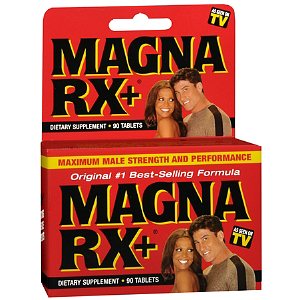 Looking like The Year of Defective Automotive Recalls and Lawsuits…
Looking like The Year of Defective Automotive Recalls and Lawsuits…
Top Class Action Lawsuits
It’s getting hard to stay on top of the number of defective automotive lawsuits, and math was never my strong suit…but suffice to say there are many. Added to the list this week is a putative class action filed against Mazda Motor Company, alleging the automaker hid knowledge that Mazda 3 and Mazda 6 vehicle models have defective dashboards that melt when exposed to sunlight and subsequently give off a chemical odor and become reflective, posing a risk of temporary blindness in drivers. Talk about a one-two punch. Like I said, math is not my forte but even the most basic understanding indicates that selling a product that can injure or kill your customers can’t add up to good business.
According to the lawsuit: “Mazda’s conduct violates multiple state consumer protection statutes. On behalf of themselves and the proposed classes, plaintiffs seek to compel Mazda to warn drivers about the known defect and to bear the expense of replacing dashboards that Mazda should never have placed in the stream of commerce in the first place.”
Filed in California federal court by lead plaintiffs Danielle Stedman, Jody Soto and Gary Soto, the lawsuit claims Mazda refuses to cover repair costs for the melting dashboards in their vehicles because their cars were no longer under warranty. However, the allege that had they known about the defect prior to purchasing their vehicles, they would not have bought those cars in the first place. The consumers say the automaker failed to properly inform them about the defect.
The plaintiffs claim Mazda knew or should have known when it sold the defective vehicles that the dashboards would deteriorate when exposed to sunlight and “predictably high” summertime temperatures, presenting unsafe condition for drivers.
Like all other automobile manufacturers, Mazda has known “for decades” that dashboard reflections can impair drivers’ visions and make it difficult for them to see pedestrians or objects on the road, according to the suit. The information has been even been readily available through research published by the University of Michigan in 1996, the lawsuit states.
The complaint further claims that Mazda has had “extensive experience” working with the materials used in the dashboards and has personnel who specifically evaluate the durability of new vehicle parts, the company knew or should have known about the defect.
“Mazda thus had exclusive and superior knowledge of the dashboard defect and actively concealed the defect and corresponding danger from consumers who had no way to reasonably discover the problem before buying and driving their vehicles,” the complaint states.
The lawsuit seeks certification of a nationwide class of all people who owned or leased one of the defective vehicles, in addition to a separate Florida class of vehicle owners and lessors.
The suit is Stedman et al v. Mazda Motor Corporation et al, case number 8:14-cv-01608, in the U.S. District Court for the Central District of California.
And here’s a little more light reading…Toyota also got hit with a defective automotive class action lawsuit this week, filed by an Arkansas man, alleging its 2005-2009 Tacoma trucks are prone to experiencing excessive rust corrosion. Specifically, the lawsuit claims that the trucks were made with frames that are inadequately protected from rust corrosion, consequently, the frames corrode from rust, rendering the vehicles unstable and unsafe to drive. Refer to Math 101 at the top of the article.
The vehicles that experience excessive rust corrosion are essentially worthless, according to the complaint (U.S. District Court for the Western District of Arkansas case number: 1:14-cv-02208.) Lead plaintiff, Ryan Burns, alleges Toyota has, for quite some time, been aware of the alleged defect in the Tacoma vehicles’ frames, and despite this knowledge, has failed to disclose the existence of the defect to him and other class members at the time of sale, has not issued a recall to inspect and repair the vehicles and has not offered to reimburse owners for costs incurred to identify and repair the defect.
The lawsuit contends that earlier this year, Burns took his Tacoma in for service because the fan on the vehicle was coming into contact with the fan shroud. “Shortly thereafter, plaintiff was informed that the frame on his Tacoma vehicle was rusted out and that the vehicle was unsafe to drive,” the complaint states.
Burns alleges he was advised that the frame on his 2005 Tacoma had severely rusted and that it would cost approximately $10,000 to repair. “In… March 2008, after receiving numerous complaints that frames on approximately 813,000 model year 1995 to 2000 Tacoma vehicles had exhibited excessive rust corrosion, Toyota USA initiated a customer support program extending warranty coverage on the vehicles’ frames for frame perforation caused by rust corrosion,” the complaint states. “The program extended warranty coverage on concerned vehicles to 15 years with no mileage limitations.”
Allegedly, the terms of the program are that once confirmation of perforation of the frame due to rust corrosion has been determined, Toyota would either repair or repurchase the vehicle. Burns claims Toyota subsequently altered the customer support program to include 2001-2004 Tacoma models, with the exception that there was no buy-back option.
“In November 2012, Toyota USA recalled approximately 150,000 Tacoma vehicles to inspect and replace the spare-tire carrier on vehicles sold in 20 cold weather states,” the complaint states. “The recall was issued to prevent the spare-tire carrier from rusting through and resulting in the spare tire dropping to the ground.”
The lawsuit contends Toyota violated the Arkansas Deceptive Trade Practices Act and breached its express and implied warranty under Magnuson-Moss Warranty Act. “Toyota USA knew, or should have known, that the frames on…Toyota vehicles were not coated with adequate rust corrosion treatment,” the complaint states. Consequently, Toyota has been unjustly enriched at the cost of class members whose vehicles were damaged, according to the lawsuit. You think?
Burns is seeking class certification, compensatory damages, an order requiring Toyota to repair or replace the frames on the Tacoma vehicles and pre- and post-judgment interest.
I’m not a fully paid up member of the Cycling Taliban, but seriously, these recalls are almost enough to get me back in the saddle.
Top Settlements
Ah—One Ringy-Dingy…that will be $45 million please. Oh yes—AT&T is busted. They have agreed to a settlement in a Telephone Consumer Protection Act (TCPA) class action alleging the company violated the TCPA by placing calls using an automatic telephone dialing system and/or an artificial or prerecorded voice message to cellular telephone numbers without the prior express consent of the call recipients. Phew..that was a mouthful. Like the automated telephone calls themselves…
The lawsuit is led by plaintiff Joel Hagerman. Hagerman brought the suit in April 2013, (U.S. District Court for the District of Montana case number: 1:13-cv-00050). According to the terms of the settlement, the size of the per-call payment shall be determined on a pro rata basis of up to $500 per call, after the attorneys fees and costs, any incentive award to named plaintiff and any settlement administration costs are deducted from the settlement fund and the settlement administrator reviews all claim forms to determine a final number of claimants.
Specifically, the settlement states: “A class member shall receive payment for each call he or she received from [AT&T] or from an OCA acting on behalf of [AT&T] during the class period by submitting a short claim form.”
No more info than that at the moment—so stay tuned.
In the meantime…Time to adjourn for the week. Have a fab weekend–and HappyThanksgiving to all you Canucks out there. See you at the bar!








